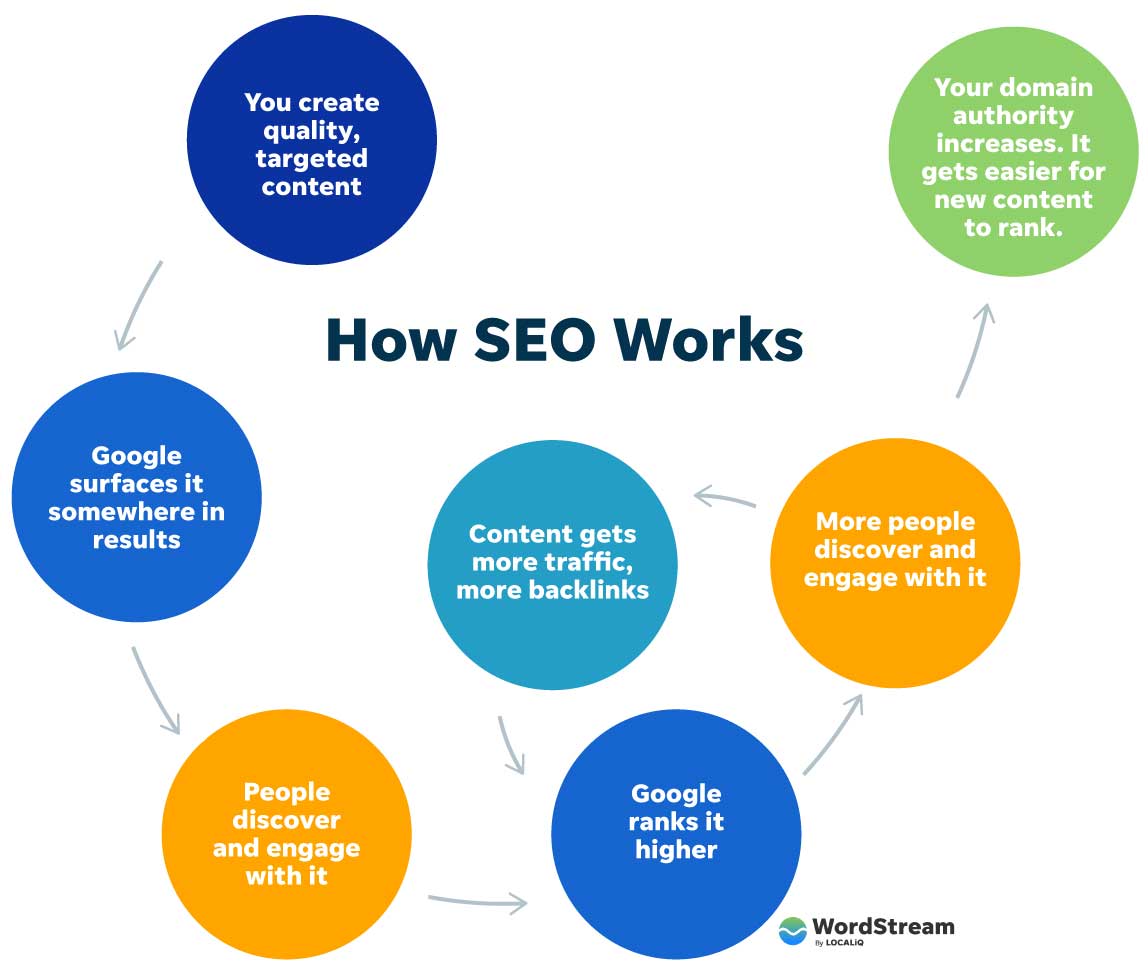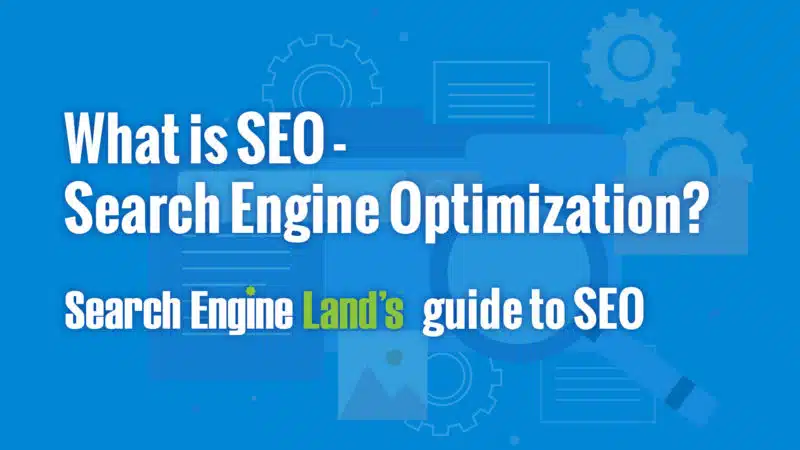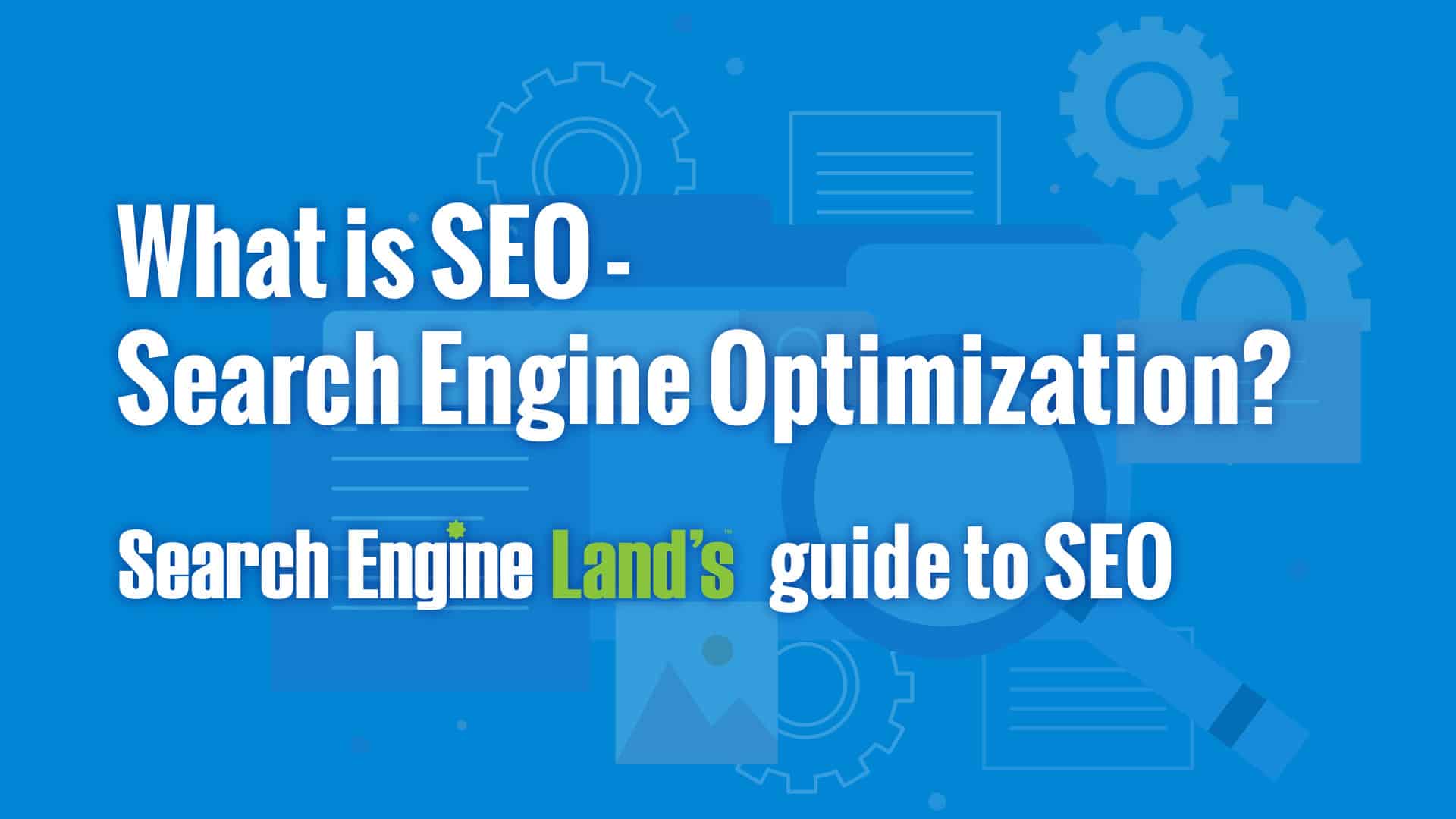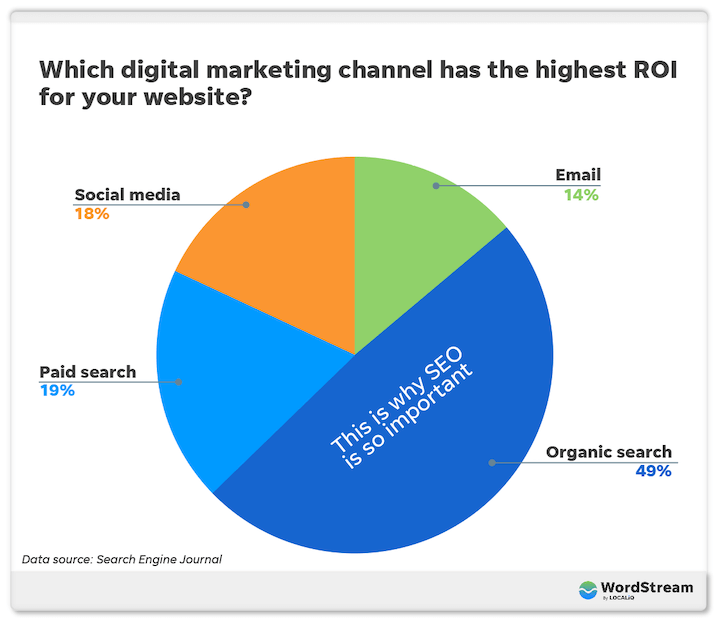Master search engine optimization with expert tips: research keywords, create quality content, optimize meta tags, improve site speed, build backlinks, and ensure mobile-friendliness.
Mastering SEO helps your site rank higher on search engines like Google. SEO is crucial for online success. It drives organic traffic and increases your site’s visibility. To succeed, you need to understand and implement the best practices. This guide will walk you through the essential steps.
From keyword research to on-page optimization, we cover all the bases. Get ready to enhance your site’s performance and attract more visitors. Stay with us to explore effective SEO techniques. Let’s dive into the world of SEO and make your website stand out.

Credit: www.wordstream.com
Keyword Research
Keyword research is the backbone of search engine optimization. It helps you understand what people search for online. By targeting the right keywords, you can attract the right audience. This process involves finding relevant keywords and using keyword tools.
Finding Relevant Keywords
Start by brainstorming ideas related to your topic. Think about what your audience might search for. Use these ideas as a base. You can also explore forums and social media to see what questions people ask. This helps you understand their needs.
Look at your competitors’ websites. See which keywords they use. This can give you more ideas. Make a list of all the possible keywords. The more, the better. You can narrow them down later.
Using Keyword Tools
Keyword tools can simplify your research. They help you find the best keywords. Some popular tools are Google Keyword Planner, Ahrefs, and SEMrush. These tools show search volume and competition level. Choose keywords with high search volume and low competition.
Long-tail keywords are also useful. They are longer and more specific phrases. These keywords often have lower competition. They can attract more targeted traffic. Use keyword tools to find these hidden gems.
Check the trends for your chosen keywords. Google Trends can show if they are gaining or losing popularity. This helps you stay updated. Focus on keywords that are relevant now and in the future.
On-page Optimization
On-page optimization is crucial for improving your website’s visibility on search engines. It involves fine-tuning various elements on your web pages. This ensures they are search-engine-friendly and relevant to users. By focusing on on-page optimization, you enhance your chances of ranking higher. This leads to more organic traffic and better user engagement.
Optimizing Meta Tags
Meta tags play a vital role in on-page optimization. They provide search engines with information about your web pages. The title tag is the most important meta tag. It should contain your primary keyword and be under 60 characters. Write a clear and compelling title to attract clicks.
The meta description is also crucial. It should be under 160 characters and include your primary keyword. Write a concise summary of your page’s content. This helps search engines and users understand your page better. A well-crafted meta description can increase your click-through rate.
Content Structuring
Content structuring makes your web pages more readable and organized. Use headings and subheadings to break your content into sections. This helps users and search engines navigate your page. Use H1 tags for your main title. Use H2 and H3 tags for subheadings.
Ensure your primary keyword appears in the H1 tag. Use related keywords in your subheadings. This improves your page’s relevance and keyword density. Use short paragraphs and bullet points. This enhances readability and keeps users engaged.
Internal links are also important. Link to other relevant pages on your website. This helps search engines crawl your site and improves user experience. Make sure your content is informative and valuable. High-quality content attracts more visitors and reduces bounce rates.
Content Quality
Content quality is the cornerstone of effective Search Engine Optimization (SEO). High-quality content attracts visitors and keeps them engaged. This boosts your site’s ranking on search engines. Focus on creating valuable, relevant, and original content. It should meet the needs of your audience. Below are two key aspects to consider.
Creating Engaging Content
Engaging content keeps your readers on your site longer. Use clear and concise language. Write in short paragraphs. This makes your content easy to read. Use bullet points and lists to break up text. This also helps readability. Add relevant keywords naturally. Avoid keyword stuffing. It makes your content look spammy. Tell stories to connect with your audience. Personal stories make your content more relatable. Ask questions to involve your readers. This encourages interaction and comments.
Using Visual Elements
Visual elements enhance your content. They make it more appealing. Use images, infographics, and videos. These elements break up large blocks of text. They also help explain complex ideas. Ensure images are high-quality and relevant. Use alt text for images. This helps search engines understand the image content. Videos should be short and engaging. They should also include subtitles. This makes them accessible to everyone. Infographics should be clear and informative. They should summarize key points from your content. Visual elements improve user experience. This leads to better SEO results.
Technical Seo
Technical SEO is a crucial aspect of optimizing your website for search engines. It involves fine-tuning various technical elements to improve your site’s performance and visibility. By focusing on these aspects, you can ensure that search engines can easily crawl and index your site, leading to better rankings. Let’s dive into some key areas of technical SEO.
Improving Site Speed
Site speed plays a vital role in SEO. A fast-loading website offers a better user experience. It also helps reduce bounce rates. To improve site speed, start by optimizing your images. Use compressed formats like JPEG or PNG. Avoid large file sizes. Utilize browser caching to store static files. This reduces the need to reload them on each visit. Minify CSS, JavaScript, and HTML files. This removes unnecessary spaces and comments. Choose a reliable hosting provider to ensure quick server response times.
Ensuring Mobile-friendliness
Mobile-friendliness is another key factor in technical SEO. Many users browse the internet on their phones. A mobile-friendly site adapts to different screen sizes. It provides a seamless experience across all devices. Use responsive design techniques to achieve this. Test your site on various devices. Ensure that all content is easily accessible. Avoid using Flash, as many mobile devices do not support it. Use legible font sizes and clear call-to-action buttons. These make navigation easier for mobile users.
Link Building
Link Building is essential for effective Search Engine Optimization (SEO). It involves getting other websites to link back to your site. These links, known as backlinks, help to improve your website’s credibility and visibility on search engines. Let’s explore two key strategies for successful link building: Earning Backlinks and Using Guest Posts.
Earning Backlinks
Earning backlinks means getting other sites to link to your content naturally. This can be done by creating valuable and high-quality content. People are more likely to link to your content if it provides useful information or solves a problem they have.
- Create High-Quality Content: Write informative articles, guides, or blog posts that offer value.
- Use Infographics: Visual content can attract more backlinks.
- Offer Original Research: Share unique data or insights that others find useful.
Another way to earn backlinks is by reaching out to influencers and bloggers in your niche. Request them to link to your content if they find it relevant. Always ensure your content is related to their audience.
Using Guest Posts
Guest posting involves writing articles for other websites. This not only helps in earning backlinks but also increases your website’s exposure.
- Identify Relevant Websites: Look for websites in your niche that accept guest posts.
- Pitch Your Ideas: Contact the website owners with a few topic ideas.
- Write Valuable Content: Ensure your guest post is informative and well-written.
Include a link back to your website within the guest post. This can be in the author bio or within the content if the website allows it. Make sure the link is natural and relevant to the topic.

Credit: searchengineland.com
Local Seo
Local SEO helps businesses reach customers in their specific geographic area. It’s crucial for small businesses that serve a local community. Optimizing for local SEO can drive more traffic to your website and increase foot traffic to your physical location.
Optimizing Google My Business
Google My Business is a free tool for businesses. It helps manage your online presence across Google. Start by claiming your business listing. Ensure all your information is accurate. Include your business name, address, and phone number. Add your business hours and website link. Upload high-quality images of your business. This helps attract potential customers.
Regularly update your Google My Business profile. Post updates about new products, services, or events. Respond to customer questions and reviews. This shows you are active and engaged. Make use of the Q&A feature. Provide useful information to potential customers. This can improve your local search ranking.
Getting Local Reviews
Customer reviews impact your local SEO. Encourage satisfied customers to leave reviews. Make it easy for them. Provide links to your review profiles. Thank them for their feedback. Respond to all reviews, positive or negative. This shows you value customer opinions.
Positive reviews build trust with new customers. They also signal to search engines that your business is credible. Negative reviews can hurt your reputation. But responding professionally can mitigate damage. Always address customer concerns. Offer solutions to their problems. This can turn a negative experience into a positive one.
Seo Tools
Effective Search Engine Optimization (SEO) requires the right tools. These tools help analyze, monitor, and refine your strategies. They provide insights into your website’s performance. Let’s explore two crucial categories of SEO tools.
Using Analytics Tools
Analytics tools offer in-depth insights into your website’s performance. They track visitor behavior and other key metrics. Here are some popular analytics tools:
- Google Analytics: Free tool that provides detailed statistics.
- SEMrush: Offers keyword tracking and competitor analysis.
- Ahrefs: Known for backlink analysis and SEO audits.
These tools help you understand user behavior. They show which pages attract the most traffic. Use this data to improve those pages. Optimize content to match user interests.
Analytics tools also reveal traffic sources. Knowing where your visitors come from is vital. It helps you focus on the most effective channels. You can allocate resources efficiently.
Monitoring Seo Performance
Monitoring your SEO performance is crucial. You need to track your progress and make necessary adjustments. Here are some tools that help in monitoring:
| Tool | Features |
|---|---|
| Google Search Console | Tracks search performance and crawl errors. |
| Moz Pro | Monitors site rankings and provides SEO recommendations. |
| Screaming Frog | Helps in site audits and identifies technical issues. |
These tools provide real-time data. They alert you to changes in your site’s performance. Regular monitoring helps you catch issues early. You can fix problems before they impact your rankings.
For example, Google Search Console alerts you to broken links. Fixing these can improve your site’s user experience. It also helps with search engine rankings. Moz Pro offers suggestions to improve your site’s SEO. Implementing these can boost your visibility.
Consistent monitoring ensures your SEO strategy remains effective. It allows you to adapt to changes in search engine algorithms. This keeps your website competitive in search results.
Staying Updated
Staying updated with the latest Search Engine Optimization (SEO) trends and techniques is crucial for maintaining a competitive edge. SEO is always evolving, and strategies that worked last year might not work now. This section will guide you on how to stay updated effectively.
Following Seo Trends
Keeping up with SEO trends helps you stay ahead. Follow credible sources like Moz, Search Engine Journal, and Google’s Webmaster Blog. These platforms provide timely updates and tips.
- Subscribe to SEO newsletters
- Join SEO communities and forums
- Attend SEO webinars and conferences
These activities help you understand what’s new in the SEO world. They also provide actionable insights to improve your strategies.
Learning From Experts
Learn from the best in the industry. Follow SEO experts on social media. Read their blogs and watch their videos. Some notable experts include Neil Patel, Brian Dean, and Rand Fishkin.
| Expert | Platform | Content Type |
|---|---|---|
| Neil Patel | neilpatel.com | Blogs, Videos |
| Brian Dean | backlinko.com | Blogs, Courses |
| Rand Fishkin | sparktoro.com | Blogs, Webinars |
These experts share valuable insights and strategies. Applying their advice can enhance your SEO efforts.
Stay curious and proactive. Make learning a continuous process. By doing so, you ensure your SEO strategies remain effective and up-to-date.

Credit: searchengineland.com
Frequently Asked Questions
What Is Seo?
SEO stands for Search Engine Optimization. It improves your website’s visibility on search engines. Better visibility leads to more visitors.
How Does Seo Work?
SEO works by optimizing your site’s content and structure. This helps search engines understand and rank it higher in search results.
Why Is Seo Important?
SEO is crucial for online visibility. It drives organic traffic to your website, increasing potential customers and sales.
What Are Seo Best Practices?
SEO best practices include keyword research, quality content creation, on-page optimization, and acquiring high-quality backlinks. Regular updates are essential.
Conclusion
Effective SEO strategies can significantly improve your website’s visibility. Focus on quality content. Use targeted keywords wisely. Ensure your website is mobile-friendly. Build quality backlinks. Optimize meta tags and descriptions. Regularly monitor your SEO performance. Adapt to algorithm changes. Consistency is key.
Stay updated with SEO trends. Your dedication will pay off. Start implementing these tips today. Watch your rankings improve. Happy optimizing!

